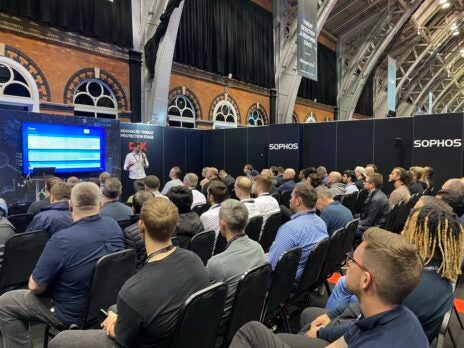Some people believe that the System 38 would never have seen the light of day had IBM Corp known what was happening amid the corn fields of Rochester, Minnesota. But, if Bob Labant and his apparatchiks are to have their way with the AS/400 of the future – and more of that later – Fortress Rochester will have to live up to its reputation for idiosyncratic independence. Perhaps it is in the air that they breathe, but the Rochester development team endows its mission with a fervour normally associated with TV evangelists. Every community has its zealots, but it must be a rare thing, even within IBM, to have otherwise sane individuals compare their conviction in an open AS/400 to their faith in God. However, on a less spiritual level, the System 38 family has proved to be lucrative wildcat for IBM.
Downsizing
There are 437,000 systems installed worldwide, and Application Business Systems is a $14,000m company, representing 25% of IBM’s revenue. Country by country, the picture varies enormously. 60% of US sales are via partners, but that jumps to 80% in Europe, although the UK is slightly lower. 60% of users are existing IBM customers, with 20% of those coming from a 370 environment, and the US is experiencing a lot more downsizing than the rest of the world. Further, Europe may represent 46% of the installed base, but it is the US that witnessed a 20% increase in revenue during 1990, compared with 6% in Canada and Latin America, 9% in Europe, and 12% in the Asia-Pacific region. Also, the two markets that have been perceived as dynamic, Japan and Italy, are now suffering a downturn, according to Labant. And the UK? Troublesome. The AS/400 has not been selling in the volumes that the Corporation would wish, and IBM UK has been plagued with agency problems. Some agents would say that IBM created many of those problems with a punitive commission structure, now reformed. But however the troubles came about, things have come to a pretty pass when three agents go under in as many months, and one of those is Bluebird Software Ltd, the UK’s largest AS/400 agent and a company in which IBM UK has a substantial holding. Everyone has a pet theory as to why the UK lags other European countries, and Labant cites the economy as a major factor. The focus has been on high-end systems, but mergers and acquisitions mean that there is not the same number of customers as a year ago. Well, yes. But is the same not true in the US and the rest of Europe, and in a time of consolidation, users may be more predisposed to the AS/400’s price-performance than the massive investment of a 390 environment. Others blame history. The UK marketplace was built on the mainframe, and it is still dominated by blue-chip requirements. Again, it’s a half-truth since there is nary a country where IBM’s business has not been based on mainframe technology, be it VSE, VM or MVS. The difference, say other commentators, is that the UK has a 370 cultural hangover.
By Janice McGinn
Many agents feel that UK management is lacking both commitment to and knowledge of the AS/400. The midrange marketplace is entirely different from that of the mainframe, and there is a perception that local management has not focused its energies on addressing and understanding those differences. So, UK management aside, what is Rochester planning for the next generation AS/400? In the long-term, an architectural overhaul looks likely, and Labant is talking of several new generations. The Meta Group has forecast that users will find the conversion process similar to that of the System/36 to AS/400, and what with Posix-compliance, redundant disk array technology and CMOS or RISC processors – or a combination of both – that forecast looks to be wholly accurate. Labant says that his development team is playing around with an AS/400 that uses RS/6000 processors, but he says that Unix under OS/400 is unlikely, unless the demand grows significantly. As anticipated, next year will see the launch of a four-way system, and Labant is bullish about how far he can take the AS/400. He dismisses the sugges
tion that it will be limited by 390 marketing decisions, saying that he is constrained neither by politics nor budget – although other IBMers have expressed a different view, and some believe that corporate headquarters will not allow the AS/400 to cannibalise mainframe sales. Labant insists that if there is any conflict, the debate won’t be managed by IBM since users will make the demands and choices. IBM has relented well, almost – on Posix compliance, and Labant says that it is a significant part of the drive towards interoperability.
C++
He ties it in with C++, the C compiler and application portability, and concedes that they are important to some customers, if not all. However, IBM has still to provide a date for Posix compliance, and Dave Zilles, ABS market plans and support, maintains that although Posix has been hyped up, it won’t make much difference. Application portability is much more important than Posix, and while no one has actually been sacked for buying Posix, it is unlikely to get the buyer promoted. Consequently, IBM has Posix on its AS/400 checklist, but it is merely a means to an end. It is not only the architecture and technology that is due to change, Labant says that he is keen to overhaul the AS/400 marketing channels. He says that IBM has a problem with market coverage and agents just don’t have enough capacity. He is hatching a number of new schemes that will enable value added resellers to shift the systems, and another approach is to sell the AS/400 OEM. Ricoh Co in Japan markets it under its own badge, and IBM says it is pursuing other such agreements. ComputerLand Corp and its ilk are still an unknown quantity, but Labant is interested in discussing AS/400 distribution with that particular community. Finally, how does he view the possibility of a plug-compatible AS/400? Labant reckons it is unlikely, but Fujitsu’s 80% stake in ICL Plc has raised more than a few IBM eyebrows. Labant says he will be watching to see if UK customers find Fujitsu-originated systems acceptable, and according to a number of agents, his concern about the Japanese is mirrored throughout the company.





